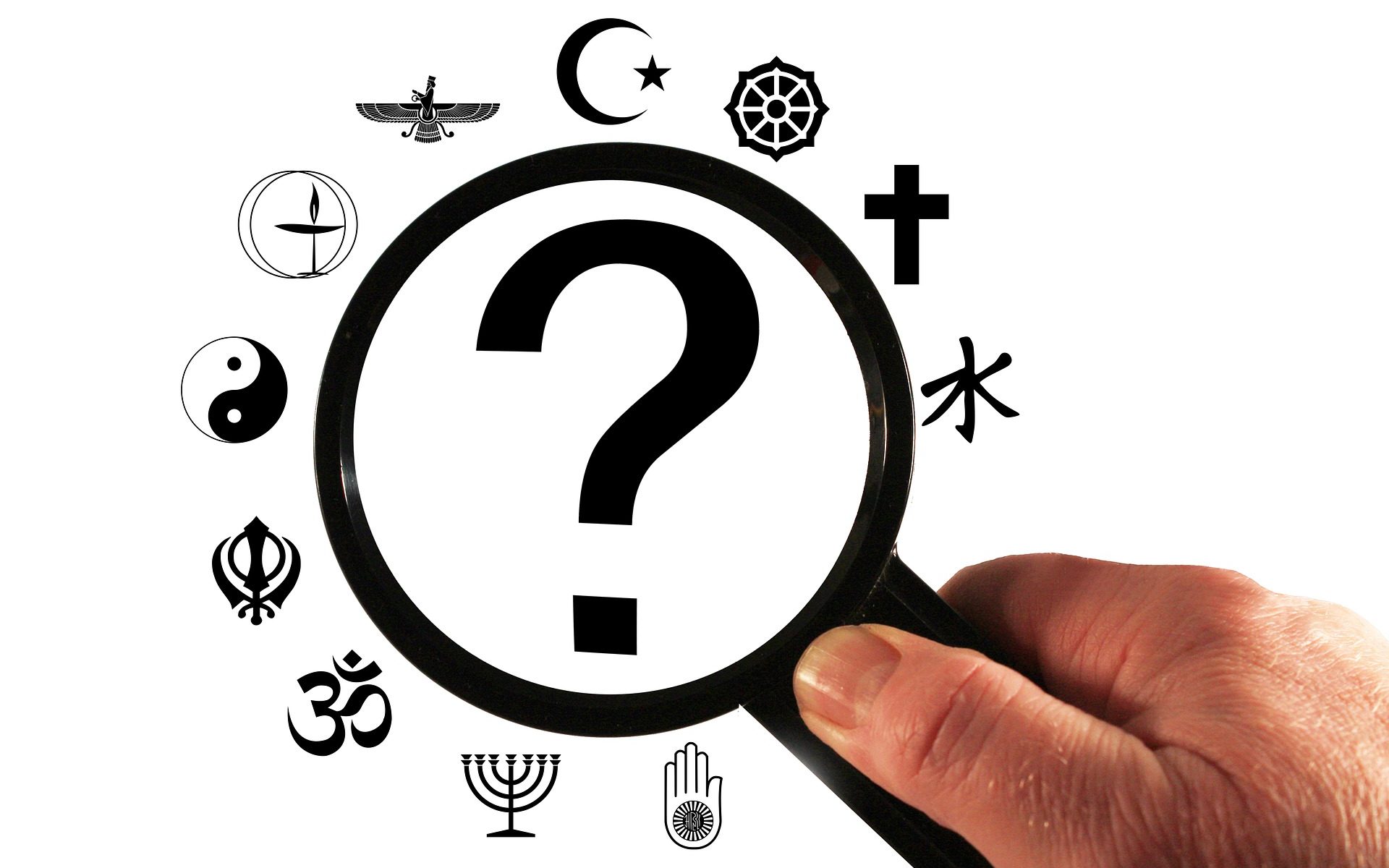The Pew Research Center published its landmark study on A Portrait of American Jews in 2013. This important research – commonly called the Pew Study – presented a series of contradictions and what felt like an ever unfolding series of “bad” news for the American Jewish community. The Pew Study felt to many as a punch to the gut of American Jewry! But where does Jewish meditation and contemplative Judaism fit in? Any why now?!
The Pew Study
The “key aim” of the 2013 Pew Study was to “explore Jewish identity” and the question, “What does being Jewish mean in American today?” As someone interested in, invested in, and a part of the American Jewish community, I find this to be a compelling question. For me, it begs the proverbial sister question, “Why be Jewish today?”
The Pew Study identified many interesting trends within the American Jewish community around interfaith marriage, religious identity, and denominational affiliation. There is an increasing trend among American Jews to marry partners of other faiths, identify with having no particular religion, and be unaffiliated with Jewish denominations and organizations.
Jewish Belief and Practice
One of the most profound statistics from the Pew Study is that while 94% of Jews in the United States say that they are proud to be Jewish, only 12% of U.S. Jews attend religious services at least once or twice a month.
46% of Jews believe that being Jewish is important to them, whereas 33% of Jews under 30 believe this.
73% of Jews say not believing in God is completely compatible with Judaism, including 57% of all Orthodox Jews and 70% of Modern Orthodox Jews. The number of Orthodox Jews who agree with this might be surprising, though Judaism(s) of all stripes and denominations have always emphasized orthopraxy – the importance of religious conduct – over orthodoxy – the emphasis on religious belief. (Unlike Judaism’s emphasis on orthopraxy, Christianity tends to emphasize orthodoxy.)
When asked specifically what it means to be Jewish, 73% of Jews said remembering the Holocaust, followed by leading an ethical or moral life (69%), and working for justice or equality (56%).
Interfaith Marriage
Among Jews who married in 2000 or later, 58% have a non-Jewish spouse. In contrast, among Jews who married in 1970 or earlier, 17% have a non-Jewish spouse. In contrast, 98% of Orthodox Jews and 73% of Conservative Jews who are married have a Jewish spouse.
Among Jews in an interfaith marriage, only 20% of them indicated that they are raising their children Jewish by religion.
Denominational Affiliation
Approximately one in five (22%) Jews describe themselves as having no religion at all, with higher numbers among Gen-X (26%) and Millennial Jews (32%.) Across the United States, 56% of Americans say that religion is a very important part of their lives, whereas only 26% of American Jews say so.
The two largest American Jewish denominations are the Reform Movement (35%) and no denominational affiliation (30%). Among Jews in these two largest “denominations”, only 16% of Reform Jews and 8% of Jews without a denominational affiliation indicate that religion is very important to them.
An Appropriate Response
These numbers are difficult for many Jews to bear, and many have called this the end of Judaism as we know it. Like in meditation, we must acknowledge reality as it is, take a breath, and respond in the most appropriate – and innovative – way we know how.
Aside from good or bad, right or wrong, fault or merit, the Pew Study presents both areas of challenge and ripe areas for opportunity. I for one am not yet prepared to say Kaddish for Judaism or the Jewish community!
The Bigger Picture
In an earlier Pew Study in 2010, it was reported that there are approximately 14 million Jews living around the world. About six million Jews live in the United States, a similar number live in Israel, and the balance live around the world in Europe (approximately 1.5 million) and elsewhere (Australia, South America, etc.).
For the first time in world history, nearly all of world Jewry live in Democratic nations – whether in the United States, Israel, or Europe – with full citizenship and rights afforded our non-Jewish neighbors. This was unheard of! A sheer miracle of Biblical proportion!
Perhaps different than the Israeli experience (for those interested in the Pew Research Center’s 2016 Israeli counterpart to the American Pew study, please see here), the very large majority of American Jews work and live and raise our children in cities where Jews and non-Jews co-exist with ahistorical comfort, familiarity, and safety. Imagine that no matter who were victorious in the 2016 Presidential elections, the sitting President would have a Jewish son in law.
Yes, all is not perfect! Despite the rise of Anti-Semitism in Europe leading to many European Jews thinking of emigrating from Europe (see here and here), a 57% increase in Anti-Semitic incidents in the United States last year (see here), and an increasingly alarming association between some progressive activists and anti-Semitism (see here, here, and here), I am very cautious, yet optimistic. Similarly, I see in the Pew Study both reasons to be nervous and enthusiastic.
Being Jewish, Doing Jewish
I have long been interested in ideas about Jewish renewal and innovation. I wrote about some of my ideas here, here, and throughout my website and blog in other posts. One of the many, many takeaways from the Pew Study is that it seems to show an ever growing discrepancy between Jewish identification and practice, between “being” Jewish and “doing” Jewish.
For me, one of the most remarkable aspects of the study are the responses to what it means to be Jewish. Of the top nine answers, none of them suggest a response specifically related to God or spiritual, religious, or existential meaning making. (After reviewing the study more carefully, none were offered to research participants. This seems to suggest a methodological choice and an opportunity for further research).
When essentially asked the question, “Why be Jewish?”, the single most popular answer (73%) was to remember the Holocaust. The events of the Holocaust were purely devastating and will forever be a stain on World War II Germany and much of Europe and other nations. And… there needs to be more.
I say this with great respect for the memory and dignity of many millions of families who lost loved ones in the Holocaust and as someone who has written a doctoral dissertation in Clinical Psychology on the intergenerational transmission process of trauma, has maintained a strong, active clinical interest in the assessment and treatment of folks traumatized by abuse, neglect, and war and their related psychological difficulties, and as someone whose own family suffered greatly during the Holocaust.
It absolutely pains me to say so, though there needs to be more of an intrinsically substantive reason to be Jewish – and hopefully (re)vitalize American Jewry – than the memory and fact of the Holocaust.
How Can We Do Jewish in the 21st Century?
This is admittedly a poor example and an exaggeration, though if asked the question, “Why live?”, a traumatized person must be able to answer more than “to remember the trauma” in order to live a full, authentic, and healthy life. Recovering from trauma requires healing, often with great caution, courage, and difficulty.
Doing Jewish in the 21st century will require more than remembering what has been in excess of any peoples’ fair share of trauma. Can you hear the Divine voice from the Book of Deuteronomy?! “I have placed before you the blessing and the curse. Choose life so that you and your children may live eternally!” (Deuteronomy 30:19). God wants us to embrace life and to heal from our traumas for the benefit off all generations.
While life and death must be respected on their own terms, the answer to death is not more death; the answer to death is life! Living life fully and completely! One lesson learned from the Pew Study is that we cannot – and must now – frighten our children into “being” or “doing” Jewish. We must actually inspire them and all of our community to live lives filled with meaning and blessing.
Why Jewish Meditation and Contemplative Judaism?
In this age of unparalleled freedom and infinite choice, we need spiritual lives equally as vast and wide. In this postmodern period of incomparable technological advances rooted in science and empiricism, we need spiritual practices grounded in the radical empiricism of personal experience, exploring personal and spiritual meaning through direct experience.
Traditional Jewish programs and services can be experienced by some U.S. Jews as overwhelming and distant to their experience and belief system, many of whom seek spiritual nourishment in the practices of meditation, yoga, and psychotherapy.
Jewish Mindfulness Meditation offers a powerful approach to engage the Jewish community – who as the Pew Study reports, are overwhelmingly proud to be Jewish – in a relevant, heartfelt, and meaningful way.
Jewish meditation, contemplative Judaism, and Mindful Judaism can attract and engage community members and allow them a tangible way to both “be” Jewish and “do” Jewish in an approachable and palatable manner.
This orientation to spirituality offers Jews and their loved ones of any religious or spiritual practice and affiliation with an innovative and especially attractive invitation to experience the Divine.
While I write about Jewish meditation and contemplative Judaism using the language of Mindful Judaism and, at times, the common vocabulary of God or the Divine, there is absolutely nothing to believe! Anyone can do it! All are welcome!
Mindful Judaism has absolutely no dogma or religious litmus tests. There is essentially nothing Jewish – or not Jewish – about sitting down, shutting up, and breathing or counting your breath! Nothing at all! If you doubt this, try it now! Come and sit and find out for yourself!
Please join me in this worthy project!
Next Steps
As always, if you are interested in learning more about Jewish Mindfulness Meditation or how to create a more meaningful spiritual path for you and your loved ones, please make sure to sign up and click the “Stay Connected Now!” button below!
Mindful Judaism is pleased to announce that we are currently offering daylong Jewish meditation and mindfulness retreats, shabbatons (weekend workshops), and other live and in person events throughout California and beyond.
If you are interested in bringing Mindful Judaism to your community, synagogue, or meditation group, please contact us at adam@mindfuljudaism.com for more information and to make arrangements.
Adam Fogel
www.mindfuljudaism.com

